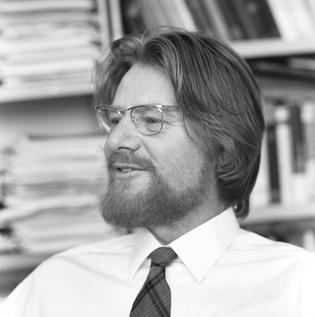A Quote by Paul Dirac
Renormalization is just a stop-gap procedure. There must be some fundamental change in our ideas, probably a change just as fundamental as the passage from Bohr's orbit theory to quantum mechanics. When you get a number turning out to be infinite which ought to be finite, you should admit that there is something wrong with your equations, and not hope that you can get a good theory just by doctoring up that number.
Related Quotes
As soon as science has emerged from its initial stages, theoretical advances are no longer achieved merely by a process of arrangement. Guided by empirical data, the investigator rather develops a system of thought which, in general, is built up logically from a small number of fundamental assumptions, the so-called axioms. We call such a system of thought a theory. The theory finds the justification for its existence in the fact that it correlates a large number of single observations, and it is just here that the 'truth' of the theory lies.
When you do calculations using quantum mechanics, even when you are calculating something perfectly sensible like the energy of an atomic state, you get an answer that is infinite. This means you are wrong - but how do you deal with that? Is there something wrong with the theory, or something wrong with the way you are doing the calculation?
The concept of 'measurement' becomes so fuzzy on reflection that it is quite surprising to have it appearing in physical theory at the most fundamental level ... does not any analysis of measurement require concepts more fundamental than measurement? And should not the fundamental theory be about these more fundamental concepts?
Quantum mechanics is just completely strange and counterintuitive. We can't believe that things can be here [in one place] and there [in another place] at the same time. And yet that's a fundamental piece of quantum mechanics. So then the question is, life is dealing us weird lemons, can we make some weird lemonade from this?
It is going to be necessary that everything that happens in a finite volume of space and time would have to be analyzable with a finite number of logical operations. The present theory of physics is not that way, apparently. It allows space to go down into infinitesimal distances, wavelengths to get infinitely great, terms to be summed in infinite order, and so forth; and therefore, if this proposition [that physics is computer-simulatable] is right, physical law is wrong.
It is a remarkable fact that the second law of thermodynamics has played in the history of science a fundamental role far beyond its original scope. Suffice it to mention Boltzmann's work on kinetic theory, Planck's discovery of quantum theory or Einstein's theory of spontaneous emission, which were all based on the second law of thermodynamics.
As an adult I discovered that I was a pretty good autodidact, and can teach myself all kind of things. And developed a great interest in a number of different things from how to build a street hot rod from the ground up to quantum mechanics, and those two different kinds of mechanics, and it was really in the sciences, quantum mechanics, molecular biology, I would begin looking at these things looking for ideas, but in fact you don't read it for ideas you read it for curiosity and interest in the subject.
String theory is the most developed theory with the capacity to unite general relativity and quantum mechanics in a consistent manner. I do believe the universe is consistent, and therefore I do believe that general relativity and quantum mechanics should be put together in a manner that makes sense.
I was lucky enough to build on the work of a number of people who had already run laps around this theory-building track. The original classification scheme, years ago, distinguished radical from incremental change. The theory said that established firms managed incremental change well, but would be expected to founder when their industry encountered a radical change.
The problem, of course, was that turning into a monster was the brighter of my two choices. Choice Number 1: I turn into a vampyre, which equals a monster in just about any human’s mind. Choice Number 2: My body rejects the Change and I die. Forever. So the good news is that I wouldn’t have to take the geometry test tomorrow.
Often when I'm on TV, they'll ask what are the three most important things for people to do. I know they want me to say that people should change their light bulbs. I say the number one thing is to organize politically; number two, do some political organizing; number three, get together with your neighbors and organize; and then if you have energy left over from all of that, change the light bulb.
































